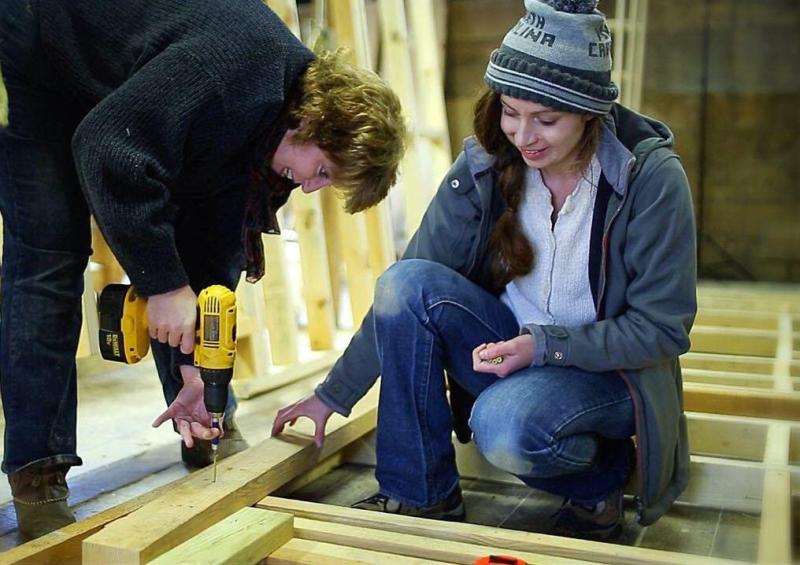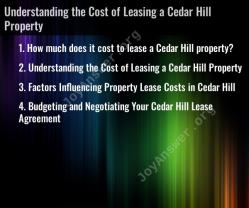What to know before building or buying a tiny house?
Building or buying a tiny house is a unique housing choice that comes with its own set of considerations and challenges. Here's what you should know before embarking on the journey of building or buying a tiny house:
Local Regulations and Zoning Laws: Research your local building codes and zoning laws. Many areas have restrictions on tiny houses, including minimum square footage requirements, where they can be located, and whether they can be used as full-time residences. Ensure you comply with all relevant regulations.
Purpose and Lifestyle: Determine the purpose of your tiny house. Is it for full-time living, a vacation home, a guest house, or something else? Your intended use will influence the design, size, and features of your tiny house.
Budget: Establish a clear budget for your tiny house project. Tiny houses can be cost-effective, but expenses can add up quickly. Consider construction costs, land or parking fees, utilities, and ongoing maintenance.
DIY vs. Buying: Decide whether you want to build your tiny house yourself or purchase a pre-built one. Building your own tiny house allows for customization but requires construction skills and significant time and effort.
Land or Parking Space: If you plan to live in your tiny house, you'll need a place to park it. Investigate options for purchasing land, leasing a space in an established tiny house community, or securing permission to park on someone else's property.
Size and Design: Determine the size and layout of your tiny house. Consider your specific needs and lifestyle, such as the number of occupants, storage requirements, and any unique features you desire.
Permits and Inspections: Understand the permitting and inspection process in your area. Depending on your location, you may need permits for construction, utilities, and occupancy.
Utilities: Plan for utilities, including water, electricity, and sewage. Off-grid living in a tiny house may require alternative systems like composting toilets, solar panels, and rainwater harvesting.
Storage and Organization: Effective storage solutions are essential in a tiny house. Consider creative ways to maximize space, such as built-in furniture, multi-functional pieces, and vertical storage.
Resale Value: Tiny houses may have limited resale value in some markets. Be prepared for the possibility that selling your tiny house could be more challenging than selling a traditional home.
Insulation and Weatherproofing: Adequate insulation and weatherproofing are critical for comfort and energy efficiency, especially in small spaces. Proper insulation can also prevent issues like mold and condensation.
Furniture and Appliances: Choose furniture and appliances that are appropriately sized for your tiny house. Compact and energy-efficient options are often ideal for maximizing space and resources.
Customization and Personalization: Think about your design preferences and lifestyle needs when customizing your tiny house. It's your chance to create a space that reflects your personality and priorities.
Maintenance and Repairs: Tiny houses may require more frequent maintenance due to the compact living space. Be prepared for routine upkeep and any repairs that may be necessary.
Community and Social Considerations: Living in a tiny house may impact your social life and community engagement. Consider how your choice might affect your relationships and interactions with others.
Tiny house living can be a fulfilling and sustainable lifestyle choice for those who are well-prepared. Careful planning, research, and a thorough understanding of the legal and practical aspects are essential before building or buying a tiny house.
What to Know Before Building or Buying a Tiny House
Tiny houses have gained popularity in recent years due to their affordability, sustainability, and minimalist lifestyle appeal. However, before embarking on the journey of tiny home ownership, it's crucial to understand the considerations, challenges, and preparations involved.
Tiny House Living: Considerations and Preparations
Before deciding to embrace tiny house living, carefully consider the following aspects:
Lifestyle and needs: Assess your lifestyle, space requirements, and ability to adapt to a smaller living environment. Evaluate your possessions, storage needs, and willingness to downsize.
Financial implications: Determine the financial feasibility of tiny house living, including construction costs, land acquisition, utilities, and potential maintenance expenses. Consider financing options if necessary.
Legal and regulatory requirements: Research local zoning regulations, building codes, and permits required for tiny houses. Ensure compliance with all applicable laws and regulations.
Location and amenities: Carefully consider the location of your tiny house, ensuring access to essential amenities, utilities, and transportation. Evaluate proximity to work, schools, and other necessities.
Community and support: Explore tiny house communities and connect with individuals who have experience with tiny house living. Seek guidance and support from those who understand the unique aspects of this lifestyle.
Exploring the World of Tiny Home Ownership
If you've determined that tiny house living aligns with your lifestyle and aspirations, begin exploring the options available:
Building vs. buying: Decide whether to build your own tiny house or purchase one from a builder. Consider your skills, resources, and time constraints.
Design and layout: Research and develop a design that suits your needs, preferences, and available space. Utilize online resources, consult with architects or designers, and consider visiting tiny house communities for inspiration.
Materials and construction: Choose durable, high-quality materials that are suitable for tiny house construction. Consider energy-efficient options and incorporate sustainable practices.
Interior design and functionality: Design an interior that maximizes space, utilizes storage solutions effectively, and creates a comfortable and functional living environment.
Maintenance and upkeep: Develop a maintenance plan to address potential issues promptly, ensuring the longevity and safety of your tiny house.
Additional Considerations for Tiny Home Ownership:
Downsizing and minimalism: Embrace a minimalist lifestyle by decluttering and downsizing your belongings to fit within the limited space.
Adaptability and flexibility: Be prepared to adapt your habits and routines to the unique aspects of tiny house living. Embrace flexibility and creativity in utilizing available space.
Community engagement and connection: Engage with the tiny house community, attend events, and connect with fellow tiny house owners for support, advice, and shared experiences.
Conclusion
Tiny house living offers a unique and rewarding lifestyle that aligns with the values of sustainability, minimalism, and simplicity. However, it's essential to approach this decision with careful consideration, thorough preparation, and a willingness to adapt to a smaller living environment. By understanding the considerations and challenges involved, you can make an informed decision and embark on a fulfilling journey of tiny home ownership.












